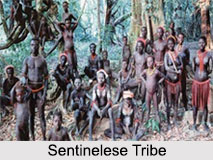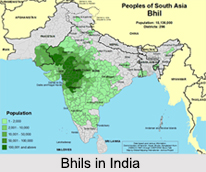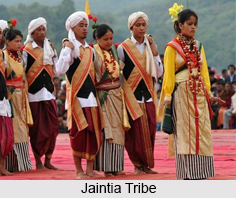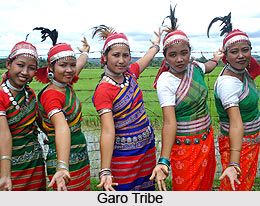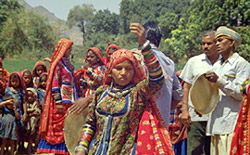Among the Bhinjia Tribes, the most civilised Dand- Bhinjias of the south are orthodox Hindus. They worship their deity by the name of Vindhu-basini which means the dweller in the Vindhyas. This deity is considered as the istadevata or the patron goddess of the tribes. They also pray and revere Lord Jagannath. They also pray to other village deities like Chadri devi and Gram-sri. Sacrifices of goats are also given to the deities but for the former it is customary to sacrifice a black goat. The pahariya Bhinjas on the other hand revere deities like Devi, Sing- Bonga or the sun god, Nind- Bonga or the moon and Mahadeo. These deities are worshipped by the Baiga- Pahan, Bhinjia priests and also by his assistants called as Dewar; the main is conducted by the Dewar while the Baiga- Pahan acts as a consulting priest who decides what sacrifice should be done. Brahmans are engaged for worshipping of greater gods and for propitiation of the deceased ones who are called mua.
Among the Bhinjias the dead are either burned or buried. In case of burying the grave is dug deep and a heap of stones are placed on top of the grave along with thorny bushes to keep away animals. Those who can afford to burn their deceased ones collect the ashes of the dead and cast them into the Ganges at Varanasi. After the death of a person the ceremony of Shradh is also performed occasionally.
Apart from these the Bhinjias also celebrate other festivals like Phagua in February, the Sarhul in April, the China Parab or the festival of sowing feast in the month of June or July, the Karma in October, or the Arwa or Kharway in the month of November
Among the Bhinjias inheritance of property is governed by the tribal customs of their community. Sons inherit the property of family and the eldest son is bestowed with the right of worshipping the ancestral gods. Girls do not inherit the property of the family.
The Bhinjias have a representative assembly that comprises of members from each household. The president of the community is known as kartaha. His office is succeeded by his son. For sorting out any problem the members first debate among themselves and later the president after hearing them gives his final verdict.

















